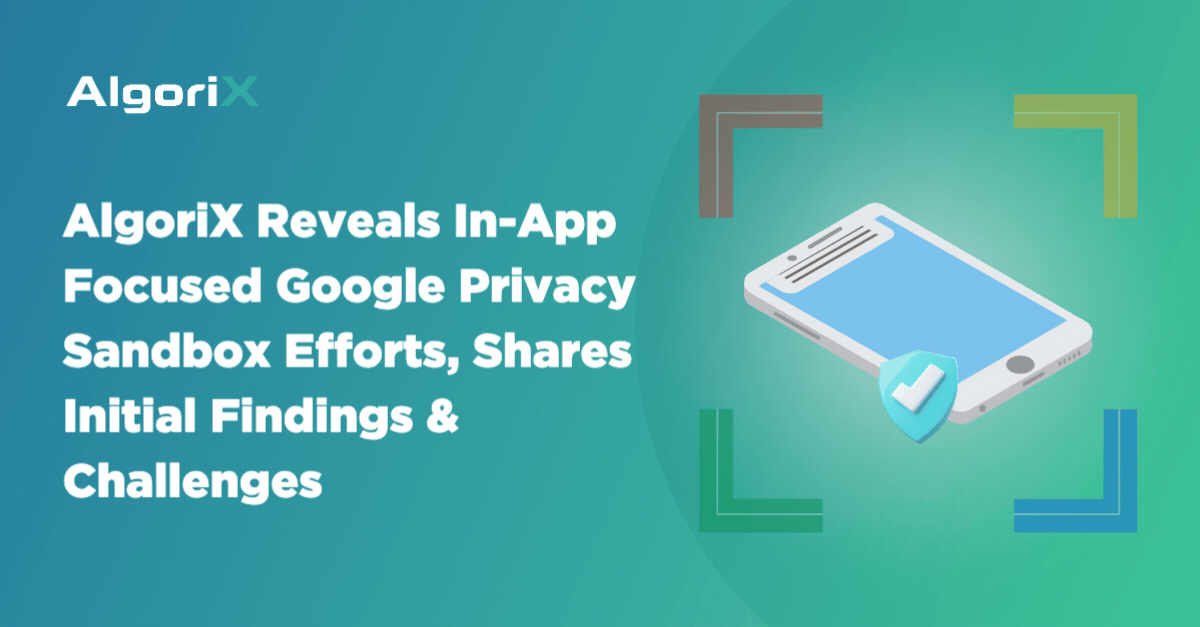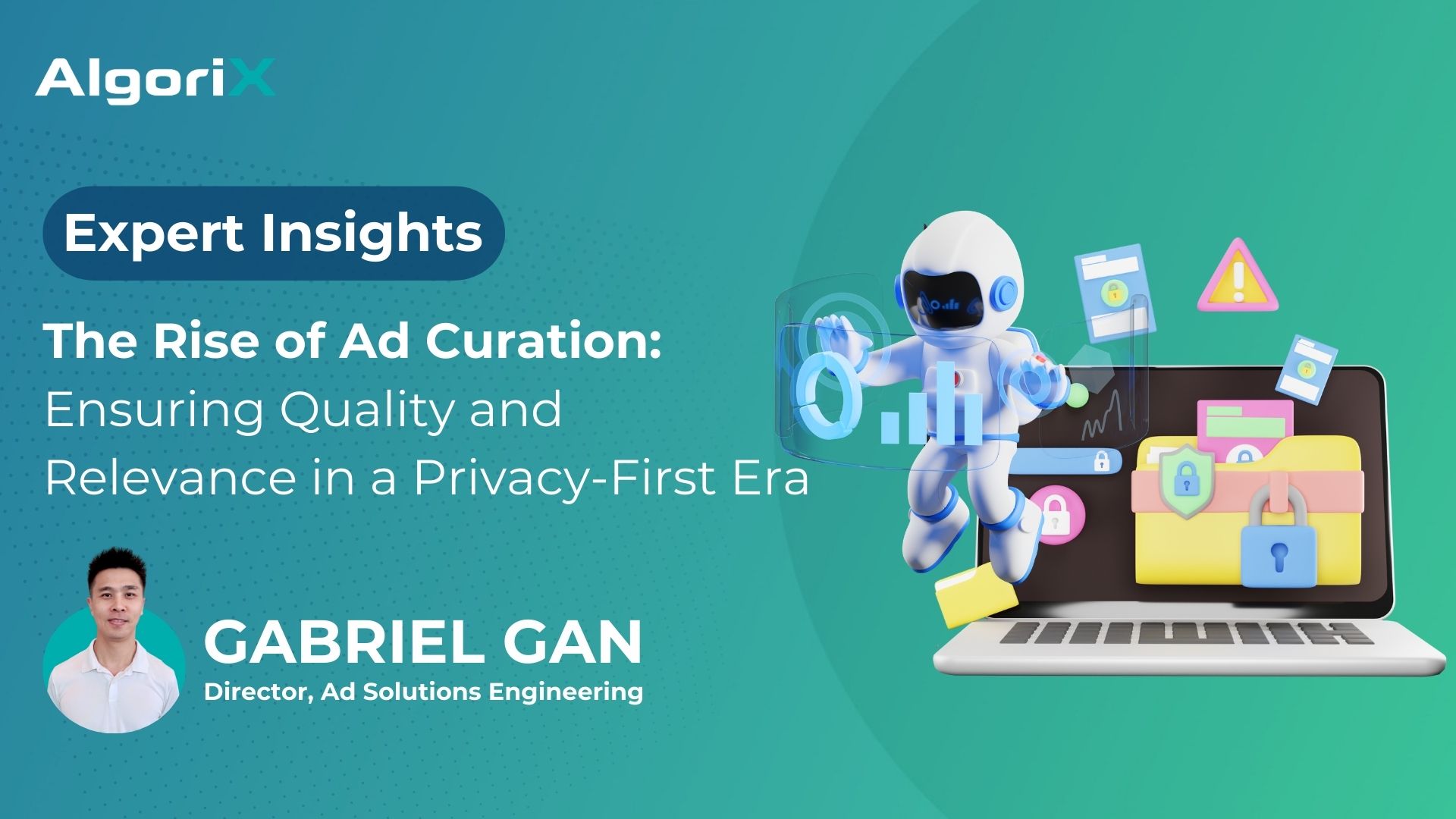Our Privacy Sandbox Efforts
Launched Tests on In-App Envirornments
Most of AlgoriX’s partners are mobile developers and in-app advertisers. This made it crucial for us to design test applications for Android devices and conduct a series of simulations specifically for in-app environments on Google Privacy Sandbox. Our initial findings are outlined below.
- Protected Audience API
-
Topics API
Feedback Sharing with Key Industry Players
The Privacy Sandbox initiative signifies a transformative leap in the digital advertising landscape. Hence, it requires active collaboration among industry players to address potential challenges and identify key opportunities. Currently, our AlgoriX team is in close dialogue with Google, sharing insights and jointly exploring solutions to hurdles encountered during testing. Simultaneously, as a member of the IAB Tech Lab, we have also shared our in-app specific feedback and recommendations to the IAB team. Recently, the IAB Tech Lab, which AlgoriX is a member of, released the final version of their Google Privacy Sandbox Fit Analysis.
Outreach to Advertisers and Publishers
Any privacy-related efforts will ultimately impact not only our business but also those of our partners’. Thus, we are proactively engaging with advertisers and mobile app publishers, conducting joint tests and exploring viable solutions. This is to guarantee seamless operations amid this ongoing transition.
Privacy Sandbox on In-App Environments
Unique Features of Privacy Sandbox on Android
- Custom Audience vs Interest Group: Unlike the web version that uses Chrome browsing history, the Android version creates Custom Audiences based on user behavior within apps. It does not communicate with the Interest Group on the web version.
- Custom Audience Delegation: The Android Privacy Sandbox allows Buyer ad platforms to delegate the task of adding Custom Audiences to specific apps or SDKs with whom they have a collaborative relationship. For example, when a user uses App X, where DSP A does not have an on-device presence, DSP A can delegate App X or MMP SDKs to App X to add a Custom Audience on their behalf. Currently, though there are discussions about implementing a similar mechanism on web-based environments, an official proposal is yet to be seen.
- Protected App Signals: Ad platforms can create and store signals from app events like installations, first-time openings, user actions, and purchases. These signals are written and stored on the device, and when the Protected Audience auction is initiated, they are encrypted and sent to the advertising platform that created these application event signals, which then help make informed ad choices.
- App Install Ads Filtering: The system prevents showing ads for apps already installed on a device, filtering out unnecessary ads during the selection process.
Points for Improvement & Optimization
- Fragmented technical documentation: While analyzing each use case with the IAB Tech Lab Privacy Sandbox task group, the AlgoriX team found that the API documentation is rather fragmented and lacks version control, increasing the difficulty for advertising platforms to fully understand and participate in testing. The documentation of some technical solutions (such as k-anonymity for advertising creatives) is only clearly defined in the web environment’s Protected Audience API, and there is no separate technical documentation for Android applications.
- Limited scalability, increased costs: The serial auction model under the Privacy Sandbox (traditional programmatic auction followed by Protected Audience API auction) has introduced significant traffic and network restrictions that did not exist before, increasing the demands for computing power, internet connectivity, and electricity, thus increasing the cost of supporting the Protected Audience API. Furthermore, the current Trusted Execution Environment (TEE) only supports Google Cloud and Amazon Cloud, lacking sufficient market fairness for advertising platforms that use other cloud services or on-premise data centers.
- Reduced bidding transparency: Compared to the traditional OpenRTB protocol, it is difficult for both SSP and DSP to directly record No Bid and Bid Loss data within the Protected Audience API. Although it is possible to obtain aggregated data with noise through the Private Aggregation API, the traditional bidding optimization algorithms and mechanisms used by the advertising platforms need to adapt to lower bidding transparency.













